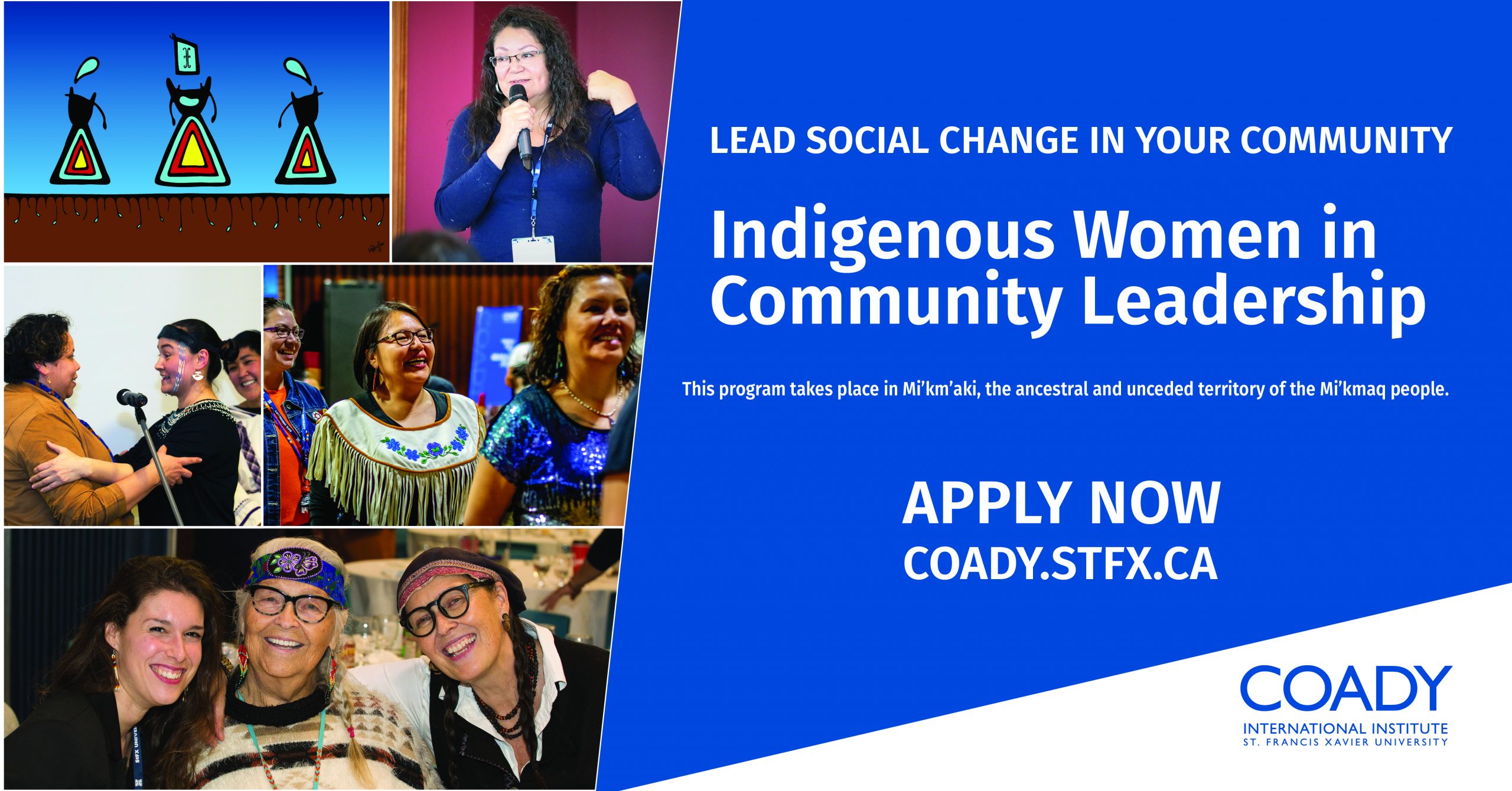Qalipu First Nation, one of the largest First Nation groups in Canada, spans across 67 traditional Mi’kmaq communities in Newfoundland and Labrador, and abroad. Jasmine Collis (Indigenous Women in Community Leadership, 2019) is a Non-Insured Health Benefits (NIHB) Support Specialist for the more than 20,000 Qalipu First Nation members.
Jasmine designed and implemented a community project aimed to empower local youth in partnership with Lakewood Academy in Glenwood, NL while attending Coady’s Indigenous Women in Community Leadership (IWCL) program.
“The primary focus of my project was to create space for youth to express how they feel their communities could be coming together to support them more effectively,” Jasmine says.
Jasmine facilitated youth engagement sessions with the school’s students aged 12 to 18. The school provided the opportunity to host the sessions during the school day to eliminate access barriers students may face returning to the school on an evening or weekend.
“Cultural teachings were included in the sessions to promote interest in learning about their Mi’kmaw culture or the culture of their Mi’kmaw peers,” Jasmine explains. “They were taught the principles of asset-based community development and used this new knowledge to create an asset map of their own communities.”
Asset-based community development (ABCD) is a core principle in Coady’s approach to development. Rather than starting with needs and deficits, an asset-based approach helps communities to identify and build upon the strengths and assets they already possess. Jasmine was able to use the ABCD tools and techniques she learned through her program to support her work in community.
This program was really a turning point for me in my leadership journey. I have always been ambitious and passionate about bettering my community, but this program boosted my self-development as a leader.
Jasmine walked students through a workshop consensus model of facilitation to help each group determine the priorities for their respective communities in terms of supporting youth.
“The students engaged in an open discussion about what they felt prevented or challenged the priorities they saw for youth in their communities, and how the community could come together to work towards their priorities.”
Mentorship is one of the key aspects of the IWCL program’s community project phase, and like all program participants, Jasmine was supported by an Indigenous woman mentor while planning and implementing her community project.
“My mentor helped me to narrow my focus for this project,” Jasmine explains. “I initially started with a huge project that would involve multiple community groups and organizations. My mentor talked me through my project and how I could keep it realistic and still meaningful.”
The final step for Jasmine will be to provide key stakeholders with a report detailing the groups’ findings, which will help inform future engagement and planning strategies.
“I plan to submit the final report to Lakewood Academy, among many other community groups, so that they can see what youth are saying and how we could work together to better support them.”
Jasmine says she is looking forward to resuming this step when schools reopen after COVID-19-related closures.
“I hope that when things are back to normal the community can come together to consider the priorities set forth by the youth in these sessions.”
The Indigenous Women in Community Leadership (IWCL) program encourages Indigenous women to further develop their leadership skills and abilities for community-led and community-driven development. The program focuses on social change in solidarity with others while providing tools that prioritize equity and inclusion.
“This program was really a turning point for me in my leadership journey,” Jasmine says.
“I have always been ambitious and passionate about bettering my community, but this program boosted my self-development as a leader and gave me many new perspectives as I saw the world through the eyes of the women I worked alongside of for three weeks in Antigonish.”

